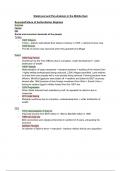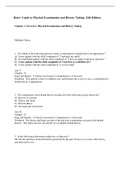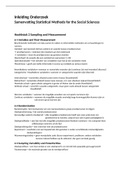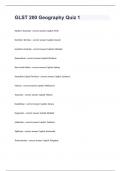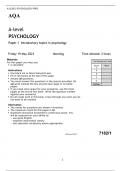Summary
Summary Access to History: The Middle East Second Edition - STATEHOOD + PANARABISM
- Institution
- OCR
This document provides all the thematic notes for statehood and pan-arabism divided into sub-sections that you can use in any essay under this topic.
[Show more]
